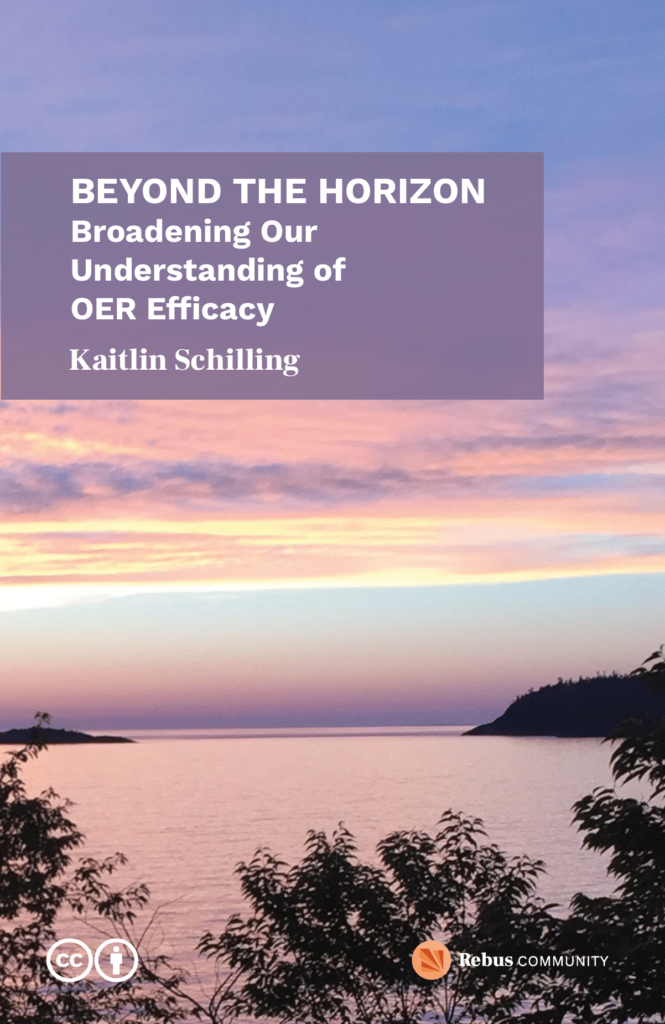We are thrilled to announce the publication of a new resource for administrators, librarians, coordinators, and educators of open education and initiatives interested in the efficacy of open educational resources (OER): Beyond the Horizon: Broadening Our Understanding of OER Efficacy!
Beyond the Horizon encourages readers to examine the potential and influence of OER — including its limits and spaces for expansion. The guide paints a picture of current OER research, including frameworks, themes, and trends. At the core it suggests research and reporting focus on how OER can reach beyond traditional boundaries and make a significant impact in education, broadening the horizon on OER efficacy.
This guide was developed from programming insights as Rebus delivered the Textbook Success Program to cohorts in Louisiana and Massachusetts. We are deeply thankful for the collaboration with these partners, and to the William and Flora Hewlett Foundation whose generous funding made creating this guide a reality.
Over the course of several months, we worked with nearly 50 OER project teams to understand the individual and state-wide goals of their open initiatives. We also analyzed a wide array of research on OER efficacy to look for common themes and patterns, while also being mindful of any gaps in the research. In the process of examining the themes and patterns that emerged from our research, it became clear that the insights we were gleaning were more than just observations — instead, they were directives, giving us chances to improve.
These observation and paths forward are documented in the short guide, which is divided into two parts:
- OER Landscape: What OER efficacy currently looks like, including frameworks used to measure the impact of OER, themes in research, and gaps in literature.
- Opportunities in OER Efficacy: What OER efficacy could look like, including opportunities and recommendations based on the research and practice.
Beyond the Horizon is a practical guidebook meant to be used in whatever ways you find useful. We hope this guide broadens your understanding of OER efficacy by providing you with frameworks, reflective questions, and an analysis of current OER efficacy research. The guide’s brevity is intended to give readers information that is quick to understand and simple to process, making learning more effective and streamlined. Additionally, you’ll notice a shift to a more formal tone in this guide from our previous guides to improve clarity and ensure that complicated ideas are communicated with authority and precision.
Please share this OER widely amongst your networks! As you read and share, let us know your thoughts, ideas for future updates, and if you use the OER in your community and environment, using our Feedback and Suggestions form. Happy reading!

